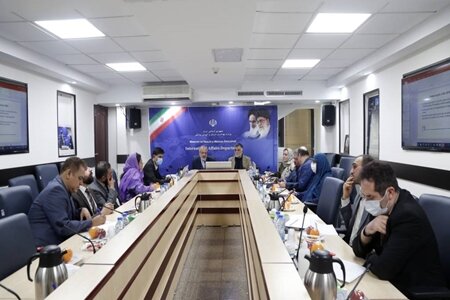TEHRAN - The first meeting of the blood transfusion organization of G5 countries, namely Iran, Afghanistan, Iraq, and Pakistan plus the World Health Organization, will be held in Tehran on February 14-15.
In this line, a coordination session was held on Monday with the participation of representatives of the blood transfusion organizations of Iraq, Pakistan, and Afghanistan, the ambassadors of the mentioned countries, and the representative of the World Health Organization in Iran.
During the meeting, Jaffar Hussain, the World Health Organization representative to Iran, said: “In my meeting with Dr. Tedros [Adhanom Ghebreyesus], the director-general of the World Health Organization, he encouraged the group of five to boost cooperation and called other countries to follow this model of cooperation in different regions.”
This cooperation program is very effective at border points and controls the spread of disease from one country to another, he added.
Regional health plans
Health Minister Bahram Einollahi said in October 2022 that considering specialized and experienced human resources, advanced medical facilities, and equipment, Iran can cooperate with the member countries of the World Health Organization to implement regional health plans.گرش
He made the remarks on the sidelines of the 69th session of the Regional Committee for the Eastern Mediterranean in Cairo, Egypt on October 10-13.
Ensuring health and controlling pandemics requires the cooperation of all countries, especially neighboring countries, and if any country wants to provide its own health without considering this necessity, it will not be successful, Einollahi stated.
Iran has specialized and experienced human resources, advanced medical facilities and equipment, medicines, and efficient universities, and while preparing to cooperate with the member countries of the World Health Organization, it can implement many plans of the G5.
Ahmed al-Mandhari, the World Health Organization director for Eastern Mediterranean Region, also expressed hope that the cooperation of this group will be expanded and accelerated, especially from the border points.
He announced the readiness of the Eastern Mediterranean Regional Office for technical support to Group Five in the field of health and requested to use the experiences of this group.
Aamer Ikram, the Executive Director of the National Institute of Health Pakistan, also mentioned the cooperation of the G5 should become a suitable model for the Eastern Mediterranean countries.
There are many capacities in the member countries of the group of five, especially Iran, and these countries should use each other's capacity, he stated.
Iran initiated the establishment of the G5 in 2005 to promote subregional cooperation in health among the group of four countries – Afghanistan, the Islamic Republic of Iran, Iraq, and Pakistan – plus the World Health Organization as the fifth member of this group to provide technical support in improving this collaboration.
Several activities have already been taken under this initiative, with the Islamic Republic of Iran taking responsibility for serving as its secretariat.
In June 2021, Ahmed al-Mandhari, the World Health Organization director for Eastern Mediterranean Region, said the Islamic Republic of Iran is a role model for primary health care.
For the past four decades, its PHC network has aimed to ensure that people have timely access to affordable, accessible, and acceptable essential health services, he explained.
Blood transfusion achievements
According to the reports provided by the World Health Organization, Iran competes with Europe and the U.S. in blood donation indices, even outpacing them in one or two cases.
Meanwhile, Iran is among the countries of the Eastern Mediterranean region as a reference in the field of blood donation activities.
While blood donation in 70 countries still depends on replacement or paid donors, Iran is the first country in the region that has enjoyed voluntary blood donation by 100 percent since 2007.
More than 85 percent of all donated blood worldwide is used to produce blood products, while the rate is 65 percent in Eastern Mediterranean countries. Iran ranks among the highest-income countries in terms of converting more than 97 percent of the blood donated by people to plasma-derived medicinal products (PDMP).
Only 55 of 171 countries produce PDMP through the fractionation of plasma collected in the reporting country. A total of 90 countries reported that all PDMPs are imported, 16 countries reported that no PDMP was used during the reporting period, and 10 countries did not respond to the question, according to WHO.
Iran currently has the highest blood donation rate in the Eastern Mediterranean region, so out of 9.9 million blood donation units in this region, more than two million belongs to Iran.
Also, the index of blood donation is 25 per 1,000 populations, while in the member states of the Eastern Mediterranean region, this number is 14.9 per 1000. Over 2.1 million Iranians donate blood annually.


No comments:
Post a Comment